Klamath Falls Approves $207K Budget Shift for Several New Expenses
Written By: Sean Bassinger, H&N Staff Reporter
Klamath Falls has added more than $200,000 in items to its budget, in addition to other adjustments discussed at city council Monday.
Councilors voted 4-1 to approve a supplemental budget to help pay for $207,625 for services, projects and other short-term expenses. The largest items include $60,000 to purchase the former Masonic Lodge land next to City Hall, $50,975 for a parks project refund to the state and $50,000 for employee severance and interim legal counsel following the departure of former City Attorney Joanna Lyons-Antley.
The city also needed $13,950 for third-party investigation services and about $28,000 for a project analysis for a proposed quiet zone at a Portland Street rail crossing.
This latest supplemental budget is the fourth since the fiscal year 2017-18 budget was adopted last June, according to city documents.
Unforeseen circumstances
Under ORS 294.471, Oregon law allows cities to approve supplemental budgets for items that “could not reasonably be foreseen when preparing the original budget.” The last supplemental budget adjustment took place in February, when city officials say they discovered a county tax error they needed to remedy with the state.
City Manager Nathan Cherpeski said that it has not been uncommon for Klamath Falls to adopt supplemental budgets when the need arises. As one example, city officials received notice after already finishing budgets that they would need to refund more than $50,000 from state money to help improve the Lake Ewauna Trail project.
City staff say not all requirements of state agreements were met due to ODOT’s delay of the first phase in the project.
“Paying the parks department back for that grant really bothers me when one Oregon department created the problem requiring us to pay back the other Oregon department,” said Councilor Bill Adams.
Cherpeski shared similar thoughts, adding that the project was “frustrating” since it is not one the city has been in control of.
“We were supposed to be walking on this trail in 2014,” Cherpeski said.
Revisiting Portland Street’s quiet zone
Using the quiet zone project analysis as another example, Cherpeski said the city did not anticipate needing extra outside assistance when they started their research, but wanted to err on the side of caution.
The project requires cooperation from several partners, including ODOT, state rail officials and even some federal agencies in Washington, D.C.
“We realized we don’t have the capacity or expertise to muddle our way through that federal process, so we decided to hire out,” Cherpeski said following Monday’s meeting. “It was not known it would happen.”
City Engineer Scott Souders said they were working on ways to cut costs, which were previously closer to $32,000. Though they did not save much money, staff and councilors agree that it might still be worthwhile to stick with one option — a curb-like median at the crossing as opposed to more extensive options — since residents would not likely support the others.
“We know that neighborhood is not going to accept a one-way option, so we might as well save $2,000,” said Councilor Matt Dodson.
Cherpeski said talks on the quiet zone could return as soon as the next council meeting.
Enterprise zone re-designated
City council also voted unanimously to approve a 10-year “enterprise zone” designation in Klamath Falls and some surrounding areas.
The enterprise zone designations overseen through South Central Oregon Economic Development District allow certain new businesses to receive an abatement from property taxes for up to three years, which officials say could work as an incentive to bring new businesses in.
In the last three years, having the zone has added more than 35 jobs in the Klamath Falls area, according to city documents. Betty Riley, executive director at SCOEDD, said they would also include sites in Merrill and Malin this time around.
“They are consenting communities with the enterprise zones but the actual zone sponsors are the city of Klamath Falls and Klamath County,” Riley said.
Businesses eligible for the abatement include manufacturers, processors and shippers, in addition to hotel and resort businesses in some circumstances. Exclusions include retail, construction and financial businesses.
To read this article and others on the Herald and News website, please refer to the following link:
Klamath Falls Approves $207K Budget Shift for Several New Expenses (H&N)







